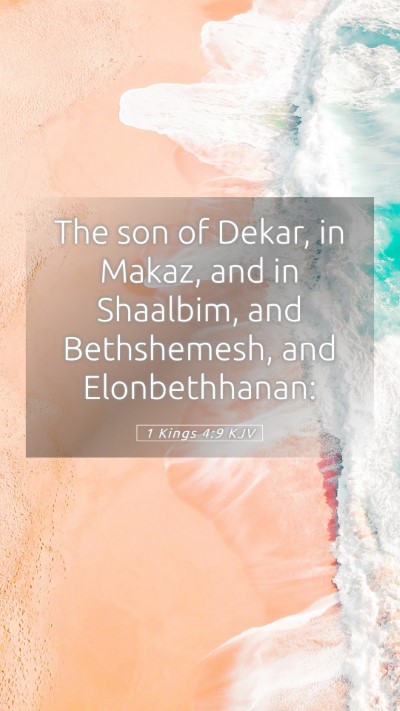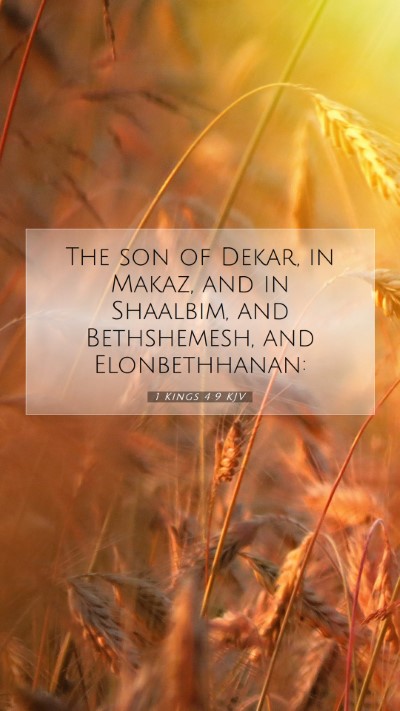Old Testament
Genesis Exodus Leviticus Numbers Deuteronomy Joshua Judges Ruth 1 Samuel 2 Samuel 1 Kings 2 Kings 1 Chronicles 2 Chronicles Ezra Nehemiah Esther Job Psalms Proverbs Ecclesiastes Song of Solomon Isaiah Jeremiah Lamentations Ezekiel Daniel Hosea Joel Amos Obadiah Jonah Micah Nahum Habakkuk Zephaniah Haggai Zechariah MalachiVerse
1 Kings 4:1 1 Kings 4:2 1 Kings 4:3 1 Kings 4:4 1 Kings 4:5 1 Kings 4:6 1 Kings 4:7 1 Kings 4:8 1 Kings 4:9 1 Kings 4:10 1 Kings 4:11 1 Kings 4:12 1 Kings 4:13 1 Kings 4:14 1 Kings 4:15 1 Kings 4:16 1 Kings 4:17 1 Kings 4:18 1 Kings 4:19 1 Kings 4:20 1 Kings 4:21 1 Kings 4:22 1 Kings 4:23 1 Kings 4:24 1 Kings 4:25 1 Kings 4:26 1 Kings 4:27 1 Kings 4:28 1 Kings 4:29 1 Kings 4:30 1 Kings 4:31 1 Kings 4:32 1 Kings 4:33 1 Kings 4:34

